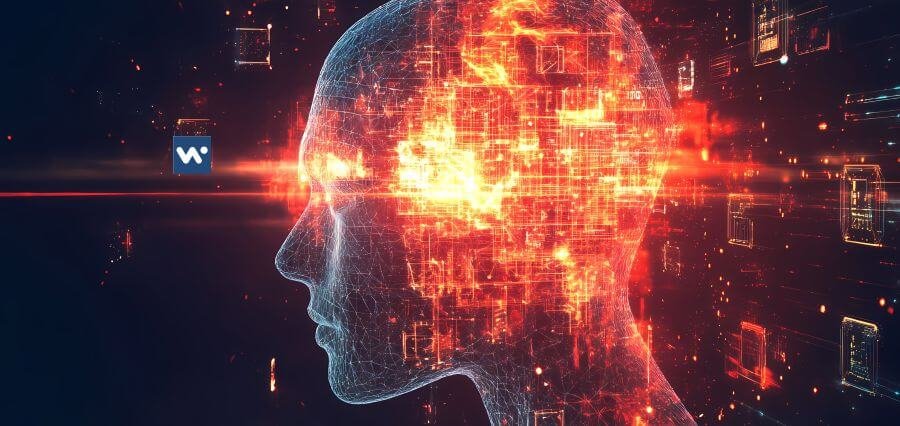As the virtual world keeps growing at a record rate, two revolutionary technologies-artificial intelligence (AI) and quantum computing-are merging to redefine the limits of innovation, computation, and problem-solving. Both of these technologies have revolutionised in their respective ways, but the fact that they are blending is a gigantic leap towards our technological capabilities. AI and quantum computing are revolutionizing the tech industry separately. Individually, they’re certainly making strides towards making the impossible possible, but together, they’re creating the groundwork for a brand-new era of scientific discovery, business acumen, and global progress.
Observing the Powerhouses
AI has now turned companies into producing machines that learn from data, change in a span of time, and do things only human brains can. Right from predictive analytics and natural language processing to autonomous systems and generative models, AI has now permeated every part of life.
Quantum computing, still in its infancy, offers computer capabilities exponentially greater than those of conventional computers. Whereas conventional bits operate with information in binary digits (0 or 1), quantum bits or qubits can be in multiple states at the same time due to quantum superposition and entanglement principles. Quantum computers can hence process and analyze data of sizes and speeds yet unimaginable.
The Convergence: Enabling Intelligence
The intersection of AI and quantum computing allows for abilities that are presently limited by constraints in traditional computing. One of the most interesting possible applications is AI training loops accelerated. Deep learning model training takes enormous computational power and time. Quantum computing can greatly accelerate training times, and thus quick iterations are possible with the ability to construct more sophisticated models.
Moreover, quantum machine learning would transform data analysis by discovering patterns in fantastically large and enormously complex data sets which are out of reach for traditional methods. There would be innovation in areas ranging from climate simulation, genomics, pharma, logistics, and finance prediction.
Solving the Previously Unsolvable
Together, quantum computing and AI can potentially solve some of the world’s most seemingly impossible challenges—challenges that are “intractable” to computers currently. In medicine, for example, this formidable duo could speed up the development of new medicines by modeling molecular interactions at a quantum level, enabling AI to make increasingly accurate estimates of effective treatments faster.
In computer security, quantum algorithms can produce unprecedented threats and solutions. Quantum computing, although able to compromise existing encryption algorithms, can also develop new quantum-safe cryptographic protocols. AI would lead the way in real-time surveillance, threat detection, and security framework updates.
Revolving Industries and Economies
domains that range from energy to automobile, finance to telecommunications, would gain immensely by the synergy of AI and quantum. In the energy domain, for instance, AI would maximize energy consumption and quantum computers would model energy grids to find even more efficient solar cell or battery material. Risk modeling and portfolio optimization in finance can be done at levels and speeds hitherto unimaginable.
Already, governments and companies are investing billions of dollars in quantum research and AI development. Already, countries like the European Union countries, China, and the United States are racing to be the first in quantum supremacy because each understands that whoever becomes the leader of the quantum revolution can redefine global technological and economic influence.
While the potential is vast, the marriage of quantum computing and AI is challenging. Hardware for quantum computing is still in development, and error correction and stability are ginormous issues to address. Scalability remains an issue, as quantum systems currently have only a handful of qubits to work with.
Aside from that, developing AI programs to execute efficiently on quantum computers involves a total overhaul of the paradigms as they currently exist. It involves new programming languages, programs, and trained personnel with quantum mechanics and machine learning knowledge.
The Road Forward
Why the convergence is so thrilling is not just that it can extend the current systems, but also that it can make possible entirely new sets of possibility. As the underlying technology continues to mature, hybrid quantum-classical systems become a reality, where quantum and AI both collaborate to facilitate processing in new ways never conceived before.
Schools, businesses, and governments need to invest in human capital, research, and ethics in order to make this transition a success for all of humanity. The horizon for AI and quantum computing is limitless—and so is the obligation to use it well. The questions we pose—and how we decide to answer them—will define the future of industries, societies, and the human condition itself, in this new technology frontier.
Read More: Global Governance of AI: Who Sets the Rules in a Borderless Tech World?




